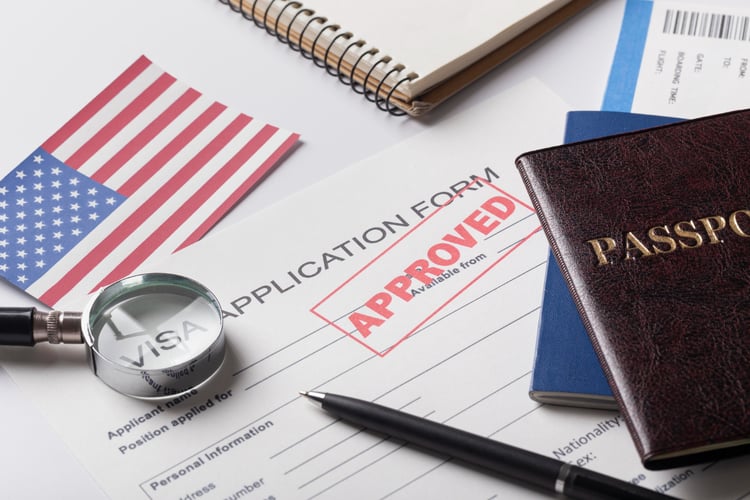
Immigration appeals can seem like a daunting journey. They're often a necessary step for those facing an unfavorable initial decision about their immigration status. When someone receives a denial from U.S. Citizenship and Immigration Services (USCIS), they aren't left without options. Instead of seeing it as the end, it's crucial to understand it as a chance to challenge and change the outcome.
The appeals process involves presenting new evidence or pointing out errors made during the initial evaluation. It's about giving your case a second chance. It's where immigration appellate advocates come into play, guiding individuals through the often complicated procedures to achieve the best outcome possible. By shedding light on the complexities, they help those affected understand their rights and the necessary steps to take, providing a sense of hope and direction.
Understanding Immigration Appeals
Immigration appeals are an integral part of the immigration process, allowing individuals to contest a decision made by USCIS or other authorities. But what exactly is an immigration appeal? In simple terms, it's an application requesting a higher authority to review a decision with which you disagree. This might include anything from denied visa applications to unfavorable rulings on residency status. An appeal is not just about complaining; it's about presenting a compelling case for a different decision.
Why might someone file an appeal? There are several common reasons:
- The applicant believes there was a legal or procedural error.
- New, relevant information has come to light that may affect the outcome.
- The initial ruling seems biased or unjust.
Filing an immigration appeal involves a structured process, beginning with understanding the timeline required. Typically, the appeal must be filed soon after the initial decision is received, often within 30 days. This tight timeframe means it's essential to act quickly and ensure all paperwork is correctly filled out and submitted. From there, the case goes through an assessment phase, where the appealing party may be required to present additional evidence or clarification.
Successfully navigating an appeal hinges on understanding these steps and recognizing the common pitfalls that can lead to rejections. By having a clear perspective on both the process and potential obstacles, individuals can better prepare and improve their chances of a favorable result.
When to Consider an Immigration Appeal
Knowing when to appeal is key. Not every unfavorable decision should be appealed, as some might not have strong grounds for change. Here are scenarios where an appeal could be a suitable course of action:
- Receipt of a denial based on a mistake or oversight by the processing agency.
- New evidence has emerged that strengthens your case post-decision.
- The initial decision overlooked crucial facts or misinterpreted applicable laws.
In these instances, pursuing an appeal can significantly impact the outcome. However, there are circumstances where an appeal might not be appropriate, such as when there's a lack of new evidence or clear errors to argue. Furthermore, the time and resources required for an appeal should be considered carefully.
For example, if someone had their green card application denied due to missing documents but later finds the needed paperwork, this could be a valid reason to appeal. On the other hand, if their denial was based on fixed legal grounds like past criminal convictions, pursuing other immigration paths might be more effective. Knowing when to pursue an appeal and when to cut losses and explore other options is crucial for saving both time and effort.
Steps to Pursue an Immigration Appeal
Deciding to file an immigration appeal is just the first step in a journey that requires careful preparation. Here's how you can start:
- Review the Decision Notice: Understand why the initial decision was made by checking the rationales provided in the denial notice. This step helps identify errors or reasons to contest the decision.
- Collect New Evidence: Gather any new information or documentation that supports your case. This might be evidence that wasn't available at the time of the original application, like employment records or affidavits from credible sources.
- Fill Out the Appeal Form: Complete the necessary appeal forms accurately. It's crucial to fill out every part correctly to avoid delays.
Once you've prepared everything, you'll submit your appeal to the designated immigration authority. After submission, patience is key, as the process may take several months. During this time, additional hearings or interviews might be scheduled. Being punctual and cooperative during these sessions can positively impact the outcome.
How an Immigration Appellate Advocate Can Help
Navigating legal complexities on your own can be challenging. This is where an immigration appellate advocate steps in. They specialize in understanding the nuances of immigration laws and can offer guidance tailored to your specific situation. So, why exactly should you consider having an advocate?
- Expert Guidance: These professionals provide comprehensive knowledge about immigration laws, which can help in creating a solid argument for your appeal.
- Paperwork Proficiency: Advocates are skilled in gathering, organizing, and presenting documentation, ensuring no necessary information is missed.
- Legal Representation: They represent your case in court or during hearings, using their expertise to advocate effectively on your behalf.
When choosing an advocate, look for someone with a successful track record in immigration appeals. It's beneficial to find a professional who connects with you personally and understands your unique circumstances. Consider their experience, their approach to handling cases, and any specialized knowledge they may possess in immigration law.
Securing Your Future
Understanding and engaging in immigration appeals when necessary is a step toward securing your future. It allows for another chance to achieve the status or rights you're aiming for. By carefully preparing your case and seeking the help of skilled immigration appellate advocates, you broaden the possibilities for a successful outcome.
As you tackle this process, remember that professional guidance can significantly affect the pathway you choose. Whether in Denver or Seattle, having experienced advocates by your side can make a world of difference. They offer not only legal assistance but also the assurance that your case is in capable hands, providing the support needed in complex situations.
For anyone considering the next steps in appealing an immigration decision, securing skilled assistance can be invaluable. At Novo Legal, our experienced team is here to support you through the process. Explore how our immigration appellate advocates can help with your case and provide the guidance you need. Whether in Denver or elsewhere, let us assist you in making informed decisions about your future.



